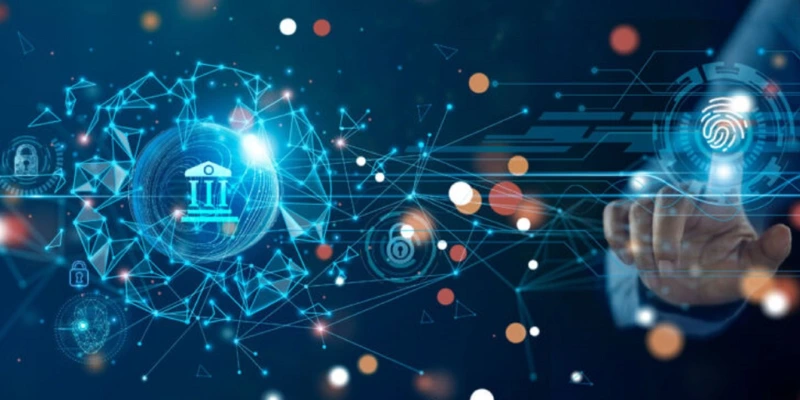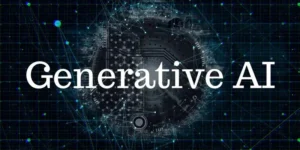
In a world increasingly dominated by digital interactions, identity is everything. Whether you’re logging into an app, applying for a job online, or signing up for a government service, verifying who you are is crucial. But the current systems are fragmented, vulnerable, and often inconvenient. This is where blockchain identity management comes into play, offering a secure, efficient, and transparent walternative.
If you’re currently pursuing a Blockchain Course in Chennai, you’re likely exploring the many use cases this revolutionary technology offers. Among them, digital identity is one of the most impactful and promising.
Why Traditional Identity Systems Are Flawed?
Traditional systems of digital identity rely on centralized databases. Think of banks, social media platforms, or government agencies. These centralized systems create a single point of failure and are often the target of cyberattacks. Your personal data might be stored in multiple places, often without your explicit consent, increasing the risk of misuse or theft.
Add to this the inconvenience of having to verify your identity separately across different platforms and services, and it becomes clear that a better system is needed. That’s where digital identity blockchain solutions shine.
What Is Blockchain Identity Management?
Blockchain identity refers to the use of blockchain technology to create, verify, and manage digital identities in a decentralized manner. Instead of storing data in one central location, information is distributed across a network, making it nearly impossible to hack or alter without consensus.
Here’s how identity management blockchain works in simple terms:
- User-Centric: The individual owns and controls their identity.
- Decentralized: Identity data is not stored on a single server.
- Immutable: Once data is recorded on the blockchain, it cannot be altered.
- Verifiable: Third parties can verify your identity without accessing all your data.
These principles are the foundation of what makes blockchain identity verification a game-changer.
Real-World Applications of Blockchain Identity
The scope of blockchain identity management is vast and growing:
- Banking & Finance: KYC (Know Your Customer) processes can become faster, safer, and more compliant.
- Healthcare: Patients can control who sees their medical records.
- Education: Institutions can issue verifiable diplomas and transcripts.
- Government Services: Voting, passport issuance, and tax filing can be streamlined.
This shows how blockchain benefit different industries by improving trust, security, and user experience.
Key Benefits of Blockchain for Identity
The main advantage of using blockchain for identity lies in its ability to balance data privacy with verifiability:
- User Empowerment: Individuals decide who can see what.
- Security: No single point of failure.
- Interoperability: Use one identity across multiple platforms.
- Compliance: Easier to meet regulations like GDPR.
With blockchain identity verification, people no longer need to remember multiple passwords or risk their data being stored across unsafe platforms. This is a fundamental way Blockchain Can Enhance Data Privacy in the digital age.
Challenges to Adoption
While the benefits are clear, adopting blockchain identity isn’t without its hurdles:
- Standardization: There is a lack of universal protocols.
- Regulatory Uncertainty: Not all regions have clear blockchain regulations.
- Technical Barriers: Requires user-friendly solutions for mainstream adoption.
However, these challenges are being actively addressed by developers, regulators, and educational institutions.
How Blockchain Enhances Cybersecurity
A common question is how Blockchain Enhance Cybersecurity Measures. Because blockchain is decentralized and tamper-proof, it drastically reduces the risks associated with centralized identity systems, like:
- Data breaches
- Unauthorized access
- Identity theft
Smart contracts can automate verification processes without exposing sensitive data, further boosting trust and efficiency. In fact, many tech analysts consider identity management blockchain as a cornerstone in the Impact of Blockchain on Data Security.
A Quick Example: Self-Sovereign Identity (SSI)
Self-sovereign identity is a concept where users manage their own identity without relying on a central authority. Blockchain makes SSI possible by letting individuals store verified credentials on their device, and share them securely when needed.
Say you’re applying for a job. Instead of emailing a PDF of your degree certificate, you could share a blockchain-verified version that the employer can validate in seconds. That’s the power of blockchain identity management in action.
As our digital lives grow more complex, so does the need for secure, private, and user-friendly identity solutions. Blockchain offers all of this and more. Through decentralization, cryptographic security, and transparency, it provides a strong foundation for modern identity systems.
If you’re serious about mastering this technology, a quality Training Institute in Chennai can give you both the foundational knowledge and hands-on experience needed to become a contributor in this space. From improving access to government services to making online banking safer, blockchain identity could soon be a standard feature of the internet. Understanding and engaging with this field now is not just smart, it’s essential.

